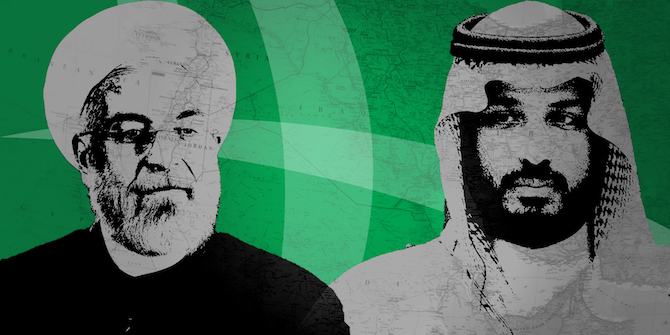by Nora Jaber

In February 2021, Saudi Arabia announced plans to implement a series of legal reforms to be finalised by the end of the year, among which is a codified Personal Status Law (PSL). The reforms are a step toward codifying the entirety of the country’s legal system in order to improve the Kingdom’s ‘legislative environment’. They aim to provide clear laws, speedier access to legal justice, and eliminate inconsistencies in legal verdicts.
For women in Saudi Arabia, a codified PSL is a major announcement considering the Kingdom is currently the only country in the GCC where this part of law remains uncodified. Under the current Saudi legal system, PSL is left entirely to the discretion of male judges whose role, according to Article 48 of the Saudi Basic Law of Governance is ‘to apply the rules of the Islamic Sharia in the cases brought before them’ and extract laws through an interpretation of the Islamic texts in a process known as ijtihad. The lack of codification makes the scope and content of the law uncertain and gives judges significant leeway to interpret the Shari’a as they see fit. In deciding cases, Saudi judges tend to follow the Hanbali school of Islamic jurisprudence, though they are not legally limited to it. The absence of stare decisis in Shari’a courts means that similar cases can have different outcomes, depending on the interpretation of the individual judge. This has had detrimental effects on women who have found that in cases relating to PSL in particular, judges regularly decide in the interests of men, basing their judgements on patriarchal interpretations of the Shari’a. This is particularly clear in cases relating to the male guardianship system, under which Saudi women require the permission of a male relative to make a range of choices, including enter into marriage. Without a codified PSL that clearly sets out rights and obligations, the scope and practical effects of the guardianship system on women’s lives are left to the discretion of judges.
Due to the lack of predictability and the unjust outcomes in legal judgements, there have been several attempts to push for codification of laws, with the codification of PSL being at the centre of these efforts. In fact, in 2013 a draft PSL was presented and approved by the Shura Council. The Ministry of Justice explained that the draft law was rejected on the basis that ‘PSL is a serious and sensitive type of law — with repercussions that can reshape the social, cultural, economic and religious aspects of society’ (see page 6 of Hala Aldosari’s report here). Calls for codification have also been met with resistance from Saudi judges on the basis that it would violate the Islamic legal tradition of ijtihad. Codification would compel judges to a binding law thereby limiting their ‘individual evaluation of and judgement on a particular case instead of using the full range of Islamic debates and opinions available through the classical fiqh [jurisprudence] literature’ (page 4 of Aldosari). It would therefore remove the flexibility and pluralism that comes with ijtihad and restrict judges to one legal opinion, leaving no room for interpretation or pluralism of opinion. While there are advantages to this flexibility that allows judges a wider range of sources from which to provide a fair outcome, there are many cases in Saudi courts to show that this has not always been the case for women.
In 2021, it appears that the debate over codification of the PSL has been settled. The decision to codify is not surprising considering the state’s recent political reform project, two major factors of which are the marginalisation of the religious establishment and an emphasis on women’s empowerment. The centrality of women to the Saudi state’s legitimacy narrative is not new. Whereas until the early 2000s they were instrumentalised as symbols of the state’s religiosity, since then they have been increasingly brandished as icons of its neoliberal modernity. Women have been key to the state’s quest to improve its international reputation and legitimacy. A clear and codified PSL will likely attract the Saudi state positive international media attention and, once again, result in the celebration of state officials as progressive top-down reformers. The decision to pass a PSL follows a series of reforms to improve the legal rights of Saudi women, most notably granting Saudi women the right to drive in 2017 after decades of consistent campaigns by Saudi women’s rights advocates, and the gradual reduction in the scope of the guardianship system over the past few years. Saudi women no longer require the permission of a male guardian to work, study, travel, obtain a passport or change their personal data. This too comes following years of women-led campaigns demanding greater legal autonomy for Saudi women.
The codification of a unified PSL offers the state an opportunity to enshrine fair and equitable laws that do not discriminate against women. It remains to be seen whether it will do so, or whether it will merely legally enshrine dominant and discriminatory interpretations of the Shari’a. In finalising the PSL, the state should consider consulting women, particularly those who have been victims of the current legal system. Moreover, considering the state’s assertions that the legal reforms protect human rights, honour the Kingdom’s commitments under international treaties, and adopt international legal standards in a manner that does not contradict Shari’a, this is a prime opportunity for transnational engagement with Islamic feminist movements whose work since the early 1990s in particular has been instrumental to bridging the gap between Islamic law and women’s human rights. At the heart of Islamic feminism is an emphasis on the separation between what is contained in Islamic texts and how they have been interpreted in patriarchal settings. They engage in a woman-centred egalitarian reinterpretation of Islamic texts, particularly in areas of the Shari’a that pertain to women and which thus far, have been interpreted and applied in discriminatory ways. By consulting women and drawing on Islamic feminist approaches, with which many Saudi women have engaged, Saudi Arabia might inclusively and collaboratively adopt a fair PSL as a step toward achieving its self-declared goal of empowering women.






Very insightful read!